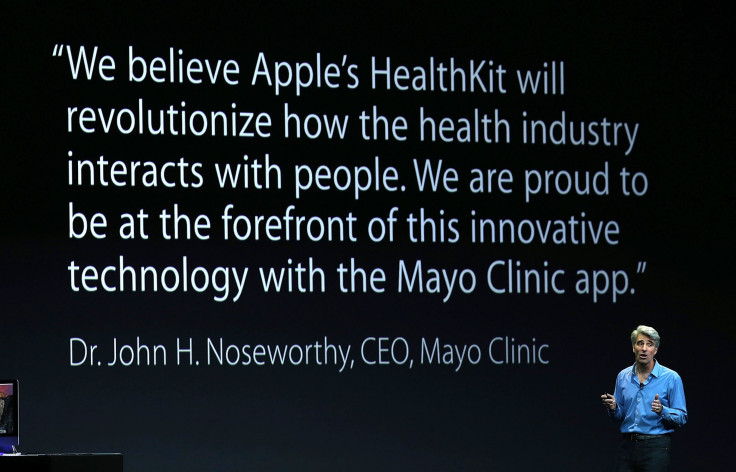WWDC 2014: iOS 8 HealthKit Falls Short Of Expectations

Despite plenty of pre-show buzz and the backing of the Mayo Clinic, HealthKit fell far short of expectations when it was officially announced at Apple's World Wide Developers Conference this week.
Following the WWDC keynote, which wowed the crowd with news of two feature-packed operating systems, iOS 8 and OSX Yosemite, the much-anticipated software developers kit (SDK) disappointed attendees as it turns out to be just a tentative first step into a new vertical for Apple (NASDAQ:AAPL).
HealthKit provides developers with tools to create programs and app integrations that will better assist the medical community and consumers interested in health maintenance and monitoring. The SDK provides a way to connect outside health trackers, like Nike+ Fuelband, Jawbone Up24 or Fitbit Flex fitness wearables, and third-party apps, and consolidate the data from them in a single location. It takes all of a user’s already tracked data and puts it in one place. But it only consolidates info, so the user will still need all of the same apps as before -- which reminds us of Apple’s disappointing mobile wallet app, Passbook.
“With HealthKit, Apple takes tentative steps once again to enter a new vertical,” said Enrique Velasco-Castillo, an analyst for Analysys Mason's Digital Economy research, “in a way that is reminiscent of how Passbook has been on an exploratory foray into mobile payments.”
While Passbook is a great way to centralize movie stubs, airline boarding passes and concert tickets, or keep loyalty cards like AAA, the app isn’t widely used. Launched in September 2012 with iOS 6, Passbook was hailed as "disruptive," but almost two years later people are still trying to justify it. It was supposed to be a digital wallet; instead, it holds your Starbucks Gold Card.
To be fair, HealthKit and its subsequent iOS app, Health, aren't complete duds. After all, they have the Mayo Clinic as a launching partner.
“We believe Apple’s HealthKit will revolutionize how the health industry interacts with people,” said John Noseworthy, M.D., Mayo Clinic president and CEO. “We are proud to be at the forefront of this innovative technology with the Mayo Clinic app.”
HealthKit looks like it could one day change the way personal health apps are used, but without the proper support, it won't likely get users to leave the third-party app they're already using.
Admittedly, that is a singular way of thinking. Times change and Apple is known to be forward-thinking. Passbook may still have a future as Apple mobile payment systems are supposedly in development. The same may be true for Health, especially considering the unannounced and fabled iWatch, Apple’s first wearable device supposedly rife with fitness and health sensors.
Additionally, HealthKit faces a series of regulatory hurdles that will make it difficult for the app to get global acceptance.
“Apple’s current focus on enablement is due to the regulatory challenges that influence remote patient interactions,” Velasco-Castillo said. “Data protection and privacy laws across the world vary greatly, and certain jurisdictions like Brazil closely dictate what can, and cannot, be shared through a remote session between a patient and a physician.”
© Copyright IBTimes 2024. All rights reserved.





















